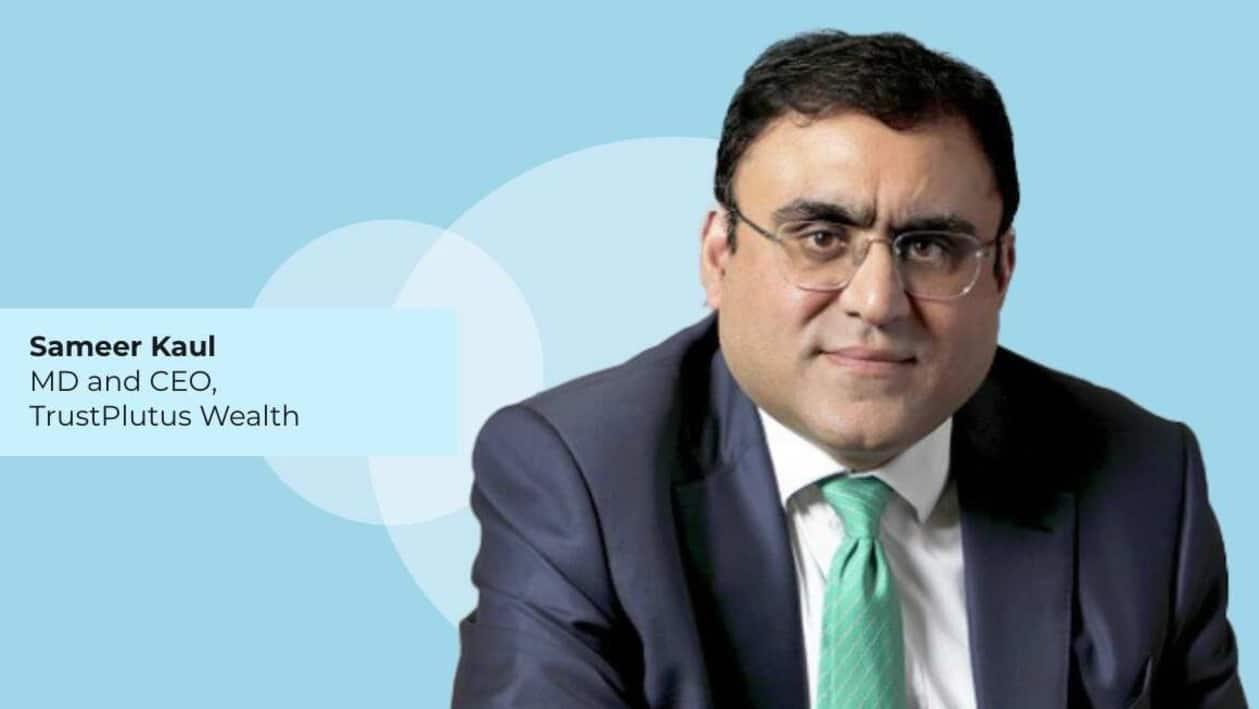The ongoing market volatility is here to stay for some more time, and would thus impact the returns on equity this year.
However, the risk-free returns from fixed income instruments have become quite attractive, says Sameer Kaul, MD & CEO of TrustPlutus Wealth Managers, in an interview with MintGenie.
Mr Kaul, who is a management graduate from University of Illinois Urbana-Champaign in the US, also shares his views on the impact of inflation on the financial markets, worries over recession, need to choose active investing over passive, and why should one stick to asset allocation for a long term.
Edited Excerpts:
What are your views on the ongoing volatility in the financial markets? Is this wise to invest in fixed income instruments during the current market scenario?
Returns from equity will remain muted for some more time. Valuations are still expensive. So far it is negative yield this year, and will remain range-bound for some time.
Overall, it is going to be a difficult year for investors. But the good news is that fixed income instruments have become quite attractive.
As RBI has raised repo rate for six consecutive times in a bid to control inflation, which led to the raising of lending rates — what impact do you see of inflation on the financial markets in the near and medium terms?
Fixed income instruments have become more attractive now. The RBI may end up hiking the repo rate one more time, and then pause and see its impact on growth. This is going to impact the equity.
But it is interesting that risk free returns are as high as 7.5 percent and it is fairly investible class now, which was not the case earlier when real interest rates were negative.
What do you think about the talks of recession in the Western world? Do you think this, if happens, would spread to the Indian markets as well?
So far, I don’t see any strong evidence of recession in the US. There is a high level of employment, however, layoffs are happening, and when you let go of people, there is some impact of it.
The data shows that the employment numbers are good, and the spending numbers are also good. So, one needs to wait until the second half of this year and the early next year to come to any judgement. My honest opinion is that there could be a mild recession from the point of view of capital market.
We have started to see the impact of US interest rates going upward. We will see how this will impact the local economy. Two things can happen. First, there will be a consistent desire to keep raising rates.
This will support the US dollar but it will be negative for the emerging markets. But it will reach a stage when the higher rates will start slowing the economy. Then rates will need to be cut. Then it will be supportive to the emerging markets. Let's see how it will play out.
Would you recommend an active or passive investing strategy to retail investors? And why?
To invest in mid and small cap stocks, one should engage portfolio managers but when it comes to large cap, it is quite difficult to beat the market index such as Nifty50, so one can opt for passive investing.
Would you like to give any advice to retail investors whether they should tweak their investing strategy because of inflation or ongoing market volatility?
We recommend our clients to stick to asset allocation for a long term, say 10 years. It goes through several cycles and one may not earn a lot for 1 to 3 years in the middle of this complete market cycle.
When we see the 10-year data, best companies have given double digit CAGR (compound annual growth rate) returns but not necessarily in a short term.
India remains a growth market where we expect double-digit growth in earnings and equity but this may not happen in the next year. It is difficult to outperform the growth we witnessed in the year 2020 as well as in 2021.
Do you think the current market volatility is part of the market cycle, or is this the “new normal”?
This is not the new normal but, in fact, the normal. Earlier, it was excess liquidity in the market (and therefore, the stocks were over-priced). Equities have potential for growth and India continues to offer a good opportunity.
Would you recommend investors to wait for further market correction, or should they invest at current valuations?
It’s not recommended to time the market. The best way to invest is through systematic investment plan (SIP) because you cannot know the right time to invest in advance. Time in the market is more important than timing the market — this is the timeless investing principle.
